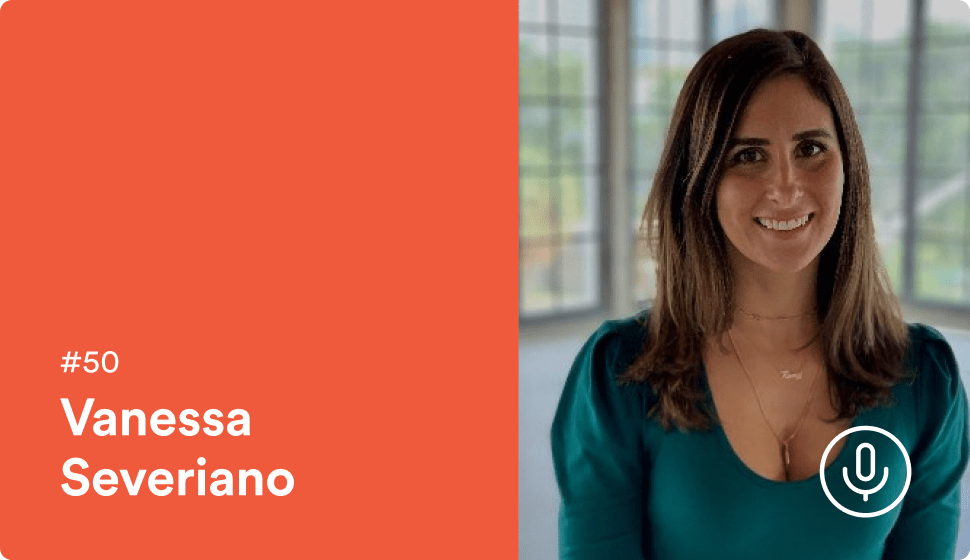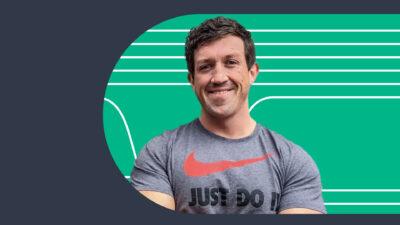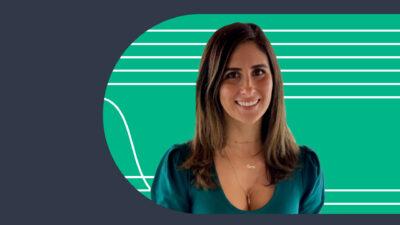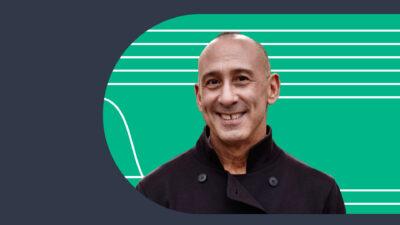Vanessa Severiano is a fitness business consultant and the host of The Business of Fitness Podcast.
In this episode, she talks about changing consumer expectations, where you need to focus your sales and marketing efforts right now, and why mission-driven companies will win long term.
Find out more about what Vanessa does at www.vanessaseveriano.com
Episode Link
This episode of The Fitness Founders Podcast can be found on Spotify, Apple Podcasts, and anywhere you get your podcasts.
Transcript
Kevin: How is it going everyone? Welcome to the Fitness Founders Podcast. I’m Kevin Mannion, VP Marketing here at Glofox. This week we talk to Vanessa Severiano, a growth, branding, and sales expert who is also the host of The Business Side of Fitness. In this episode, she talks about changing consumer expectations, where you need to focus your sales and marketing efforts right now, and why mission driven companies win in the long term. Let’s get started.
Vanessa Severiano, welcome to the show.
Vanessa: Thanks so much for having me here. I’m excited to speak with you today.
Kevin: Yeah. It’s great to have you, Vanessa. I think really interesting time of the year now as people are thinking about their plans for next year, so I’m really looking forward to our conversation.
Vanessa: Likewise.
Kevin: Okay, so maybe let’s kick off and just tell the listeners a little bit about yourself, Vanessa.
Vanessa: Okay. Sounds good. I started in the fitness industry 19 years ago. I have a two degrees – it’s in English Literature and Interpersonal and Organization Communication, and I always thought that I was going to be an attorney. But at the end of my bachelor’s degrees I decided, “You know what I think I’m good on school right now. I’m going to put it on pause.” I just wanted to look into companies that had really exciting brands. Brands that were mission based and purpose filled that look like fun. My idea of a nightmare was and honestly is still is, working in a cubicle just staring at a computer screen all day long and not really interacting with many. I ended up applying at Crunch corporate office in New York City and that’s where I started my career in fitness. I worked in the Operations Department, so that was back in 2001. I sound really old saying that but that’s just the truth. It’s been 19 years.
After Crunch, I moved down to Miami from New York. I was a part of the opening team for the first two Equinox locations in Florida. From there worked at DavidBartonGym for four years, ran marketing for Flywheel for a short period of time. And then, I got the opportunity to start a brand here in Miami from scratch. Worked on that project for a year conceptualizing and then open that location, open subsequent locations. Ran that bran for 6.5 years and then step down on my own, and now I’m consulting for fitness and wellness brands in sales, marketing, and branding.
Kevin: Nice. How has the experience been stepping out on your own?
Vanessa: Oh well. You know what, it’s fun to be a learned and a beginner at something new. I think a lot of times people are scared of change and I was definitely one of those people. Had been thinking about it for a long time however like many people COVID was really a catalyst for me to kind of do an audit of my life and where my career was headed and try something new.
Kevin: Yeah. Well, definitely a brave time to do it.
Vanessa: Yeah. You know what, at the end of the day we have to take risks in life and you can keep going on the path that you’re on or you can try something new. It’s like we only get one chance at life. I’ve been in sales for so many years, so if I’ve been selling and building other brands why couldn’t I do that for myself. I had to remind myself of that and just kind of lean into the fear and go for it anyway just like I’ve been teaching sales teams to do for years.
Kevin: Yeah. Well done on that. Okay, so given your role now in coaching other businesses, I’ve got lots of questions particularly around starting to grow again looking into next year. I think my first question is, from your perspective how has the market for fitness changed? What it’s going to be like for the next 12 months?
Vanessa: I think the biggest change is consumer expectations. I think previously as we were thinking of fitness it would be like membership to a brick and mortar location. People are really focused on increasing that experience once somebody was inside four walls but then that’s kind of where the experience left off, right? Now, the consumer expectation has been to really provide a lot of value since there is so many digital offerings and a lot of them are at a very low price point. I think that brick and mortar location and just any brand right now to stand out in the marketplace really needs to provide tremendous value because the consumer is expecting to be able to work out online, to be able to work out in-person, to have a community aspect. We really have to rise to the occasion and meet those consumer expectations.
Kevin: How do you that if you fairly have experience running your brick and mortar business and you really want to stay true to the core of your business and why you set it up? Now you have to meet these new expectations. What kind of challenges are you seeing businesses face as they do that?
Vanessa: Well, I think we have to just embrace change, right? A lot of people are kind of resistant to change because it’s always been the way it has always been, right? But I think people are resistant to change whether it is for their benefit or their detriment. Right now, it’s really, you have to adapt to be able to thrive. I think a lot of people are also in the mindset of “I don’t have a digital offering. It’s so cost prohibitive.” There’s really so many options and so many solutions out there that can be cost effective. At the end of the day, now if you are a brick and mortar location charging $150 a month for a membership, you are competing with some online offerings that have a $9.99 membership fee. And so you have to really provide the value to justify that price point especially if you used to be able to offer 50 or 100 classes, group fitness classes, and a different experience before that now you’re, due to COVID restrictions, you are not able to offer that same experience, you have to meet the consumers where they’re at and provide them with value in different ways.
I think right now people [unclear] mindset people are still spending money but they spend money on things that they want, right? Everybody is spending money on toilet paper clearly. Look at Peloton stocks, right? A Peloton bike is very expensive so that just goes to show that people are spending money on things that they want to spend money on. You have to be one of those things that people want to spend money on. At the end of the day, YouTube has existed with online workouts for free for many years. However, people are willing to pay for accountability, your time, and attention. If you are a fitness brand providing those things for people, then you are able to justify your value and you are able to continue to grow.
Kevin: Yeah. I agree. What are the list of things that you think matter to consumers now in terms of what they are buying? We could have things like convenience, community, safety, like you said, accountability. What do you think are the top 5 things people need now to think about to bring to their consumers?
Vanessa: Well, I definitely think that people are looking for value. They are looking for results. When we talk about results it is not necessarily result in the way that you think of. It’s not necessarily like a 5lbs weight loss or something tangible like that. But so many people are going through isolation right now, or low energy, feeling withdrawal, so it might be something as just improved mood, right? I think also we need to get away… In the fitness industry we have this mindset of trying to pitch weight loss, or getting lean, getting toned. That’s the message that we keep putting out there. But I really think to capture more of the marketplace what we need to start doing is talking more about the health benefits and the way that people feel. Not just so focused on the vanity and the way that people look because right now so many people are really worried about their immune system. They are really struggling with depression. Mental health is a huge issue so we have to focus on the health benefit of exercise. We have to rally around our members and our clients by creating community. Really, it all boils down to relationships. I think that was five. I lost count.
Kevin: Okay. Let’s call it five. How do you think that the sense of community is changing now that there is more of an online element to all of fitness? What do you think that means for how people create that sense of community?
Vanessa: Well, you can create community in a variety of different ways. I mean, it might be something as simple as just including your members and your clients by tagging them on Instagram and making them feel… They have to share their goals or their results if they have if you are tracking their progress and they are willing to share that. It could be online community boards. It could be close Facebook groups. It could be in-person really rallying around members and making them feel wanted, seen, and heard right now. We are craving human connection so giving people that validation, giving them a reason to feel good. I think that’s really where you can stand out.
Listen, right now, there are so many brick and mortar locations that are really worried about digital. Digital is a tool. It is not in replace of the brick and mortar. But it is a tool to use so that if I can’t make it to a class or I’m not feeling well, I can still have this tool where I can exercise. I don’t have to miss out and I’m not going to another brand to get what I need.
Kevin: Got it. That makes a lot of sense. We’ll talk a little bit around prioritizing what you need to do now that you are looking to grow your business. How should a brick and mortar business owner think about whether they need to focus on getting those clients back that they used to have, or focus on holding on the ones that they have, or go back to focusing on new member acquisition? How do you make those decisions around where to focus?
Vanessa: I mean, to me, it’s always been a combination thereof. The marketplace has changed but it hasn’t changed so drastically that you shouldn’t be worrying about retention and acquisition. I think that with acquisition we have to be mindful of how the landscape has changed and what we’re up against. I would implore each business owner to really look at your business and assess what are your key differentiators makes you stand out in the sea of fitness spaces and all the noise right now. Every time you read an article it’s all about this and that digital offering and they are getting so much attention because these companies have a lot of funding behind them. If I was an individual brick and mortar gym location, I would be focusing on all the things that I am that those digital brands.
I think right now brands need to identify what their ideal client needs. How has that changed in the last year. You can’t just keep using your marketing strategies from last year what clients are looking for has changed as we had just discussed with the consumer expectations. I would definitely do an audit of your marketing collateral, your social media, your website kind of see how you are speaking in the marketplace and see if it’s time for any branding refresh. A different look and feel. And then I would say, let me look at my brand’s purpose and mission. Right now consumers want to do business with brands that stand for something. Look at everything that’s happening with the political climate with all of these social changes, protests. Everything that has been happening around the globe consumers have so many choices that they really are going to put their money in brands that stand for something. What does your brand stand for? How do you communicate that to clients?
Kevin: Yeah. How do you keep consistent with why you start the business and yet evolve maybe into doing more online or diversifying the business a little bit? How do you talk people through knowing what to stay the same on and what to evolve?
Vanessa: I think it really goes back to evaluating where you are in your business. I know some gym owners and studio owners that had leases that were really like coming. They were kind of working so hard to pay off a lease. I think a lease can make or break a fitness business honestly. So if it makes sense to you to pivot your business, you have enough of an online following then you could potentially go to virtual. But I wouldn’t say that these fitness businesses should become something that they are not, right? Don’t try to compete with Apple Health. Don’t try to compete with Peloton. I mean, if you’re a brick and mortar location and what you offer and what you do is you have community, you are able to hold people accountable in person, you are able to get somebody away from their desk and out of Zoom and into the real world. That’s something special. That’s something that Peloton or the Apple offering, they cannot offer that. Instead of trying to get competitive and compete in a market with people that have or brands that have huge investments, drill down on what you have that makes your brand so special. But you should still have… I think having a digital offering is something that just kind of essential right now in today’s marketplace.
But again, that being said, it could be some type of revenue share. There is a lot of different options right now. It’s technology that brick and mortar location should look into but they shouldn’t be so focused on it that they are abandoning their core business.
Kevin: Are you seeing these businesses diversifying more in terms of things other than online? Because obviously people are stuck at home and there is an opportunity for them to reach more into the lives of their members. Are you seeing them offer like other services or what do you see emerging?
Vanessa: Well, when COVID first started I think we had a lot of people that were renting out or giving out equipment and whatnot. I think that, yeah, some brick and mortar locations have done a really great job of offering now like mental health offerings, and meditations, and [unclear] and things that help… Obviously stress levels are just through the roof right now but are really helping clients and members to kind of get through this. I think we have to remember that we are all in this together and a lot of people are really suffering and struggling right now. And how can we build people up? I think one way that we build people up is really by acknowledging them as individuals. There is so much out there right now with technology in getting access to the data and I’m tracking my steps, and I’m tracking my sleep, and I’m tracking my macros, and blah… blah… blah. And that’s all data. That’s noise. Having somebody that helps me understand that data, that helps me apply that data to myself. That’s what a human being does and that’s what we need to focus on.
Kevin: Got it. That makes a lot of sense. Now, I think the next question I have is around sales, and this is something you’ve done throughout your career, and now you are coaching people to have better sales conversations. How would you say that sales scripts or sales processes have evolved over the last 9 months?
Vanessa: I love sales. Sales is all about being a great communicator. A lot of people get caught up in the matrix of, “Oh, I need this closing technique”, or I need a sale or a discount, or some catchy phrase. No, you don’t. Really, especially for a brick and mortar locations gym membership or studio membership sales it’s really about being a great communicator. Finding out what is the client’s problem or what is the potential member’s problem and how do you provide a solution for that problem. And really listening letting the other person speak more than you and it’s all about relationships. People buy from people that they know, like, and trust. And how do you establish that rapport, how do you create that connection, and how do you support that individual in solving their problem.
Kevin: Yeah. That makes a lot of sense. What types of practical tips can we give people to say they are getting that pushback that, “Hey, look, you are trying to charge me $150 a month but I can subscribe something online for $15 a month.” How should you deal with those type of challenges in sales conversations?
Vanessa: I would just bring it all back to building value. What do you do to justify that $150 price point? Is it because, “Hey, listen, we also have a variety of group fitness classes. You can come in here and work out at any time that you want on your own. You have luxurious locker rooms. It is an escape. This is a place of positivity.” Enthusiasm translates. Endorphins are something that go from one person to another, right? It is like energy. You are feeding off the energy of being around other people. “If you want to work out exclusively online totally understand that’s a different experience. When you came in here today to see the gym, what were you looking for? What was it that made you walk through this door today.” And I would just really try to get as much information from the person as possible, and bring it back, take it off of yourself or your brand. I think a lot of fitness brands are little defensive brick and mortar locations because of technology and they feel like, “Oh, this has been a struggle”, and whatnot.
I read an article this morning that was quoting, and I don’t know if the statistic is accurate or not. But they were saying that 30% of gym members in the U.S. have cancelled their memberships. But let’s focus on the 70% that hasn’t, right? So there is still 70% of people that want to work out, that see the value. The other people might just be scared or we need to revisit how we’re building that value. I really just focus on the other person and how you can help them.
Kevin: That makes a lot of sense. What sort of marketing or branding tips would you have for people that are just trying to get a growth strategy in place for January?
Vanessa: I would just, again, focus back on a message of health, and community, and support instead of in the past we’ve done like 12-Week Weight Loss challenges, or get abs for summer, and that type of vanity messaging that a lot of us are guilty of in the fitness industry. I would really focus it on redirecting towards the health benefits, immunity benefits, mental health benefits, improve sleep, and just the way that people feel. I would really target my messaging on that. Again, the key differentiators depending on what your studio or gym offers. Any key differentiators that make you stand out from other locations or other fitness offerings.
Again, I really do believe that individuals are really looking to do business with mission driven businesses. Businesses that stand for something not just profit, so whether that’s you’re working locally to support a kid’s soccer team or you are working locally with mentoring other local entrepreneurs. Stuff like that, that makes people think, “Oh well, I’m doing business with a business in the community. They support the community.” It just dials them more into their local environment and that’s again something that a huge digital offering could not compete with.
Kevin: Yeah, that makes a lot of sense. Do you think there is any change in how people should approach retention?
Vanessa: I mean retention is again something that we should always focus on. I think that really checking in with those clients and members, seeing how they are doing. Again, people want to be seen and heard. They want you to be acknowledging them, right? If you walk into a store and somebody says your name, it makes you perk up. First one walk in and nobody acknowledges you. I really think that businesses need to focus on retention but they can’t just focus on retention by calling somebody and saying, “Hey, it’s time to renew your membership.” What are all the little steps you are takin on a daily basis to ensure that client is achieving their goals. And their goal might not be weight loss, right? Again, people are paying for accountability, for your time and attention so how are you delivering that. You have to make sure that you are doing that in able to improve retention.
Kevin: It is a pretty quick shift away from weight loss. That was probably going that direction anyway but it’s definitely feels like a dramatic change of it has become more mainstream now to talk about general wellness, and mental health, and how you feel as being a result from going to the gym.
Vanessa: I mean, there is so many… I have a membership at Crunchbase and I’m looking at all the companies that are getting funded right now on a daily basis. It’s crazy how many different mental health apps and telemedicine options are coming into the marketplace. It’s something that a lot of people are interested in. I think there’s been a lot of vulnerability that’s been exposed about mental health, right? It is used to be very taboo. It would be like somebody would be taking antidepressants or something like that but they didn’t really talk about it. And I think as we start to shed more and more light on it, we’re creating a huge opportunity for the fitness businesses out there. We need to capitalize on this opportunity because the benefits of exercise go completely attached to mental health.
I call my workouts my therapy. I work out every morning. If I don’t work out followed by my meditation, my husband and my kids are like, “Mom, you need to go exercise.” “Honey, you need to go meditate because I could notice the difference in your mood.” We really need to by being able to incorporate some of these things into our fitness offerings as well we are able to capitalize on this huge opportunity right now. So instead of being scared of this change we have to look at where consumer expectations are going and lead in that direction. It might be having a workout class with a 5-minute meditation at the end. We are able to meet the consumers’ needs without having to make a huge change in what we offer. We also have to remember that not everybody out there wants to do a HIT class and run at 10.0 on a treadmill. Some people just need to move their body a little bit to start seeing results.
Kevin: Yeah, makes a lot of sense. No, it’s definitely an eye opener to the opportunities that are out there if you are smart enough to tap in to what your members don’t really have or don’t have currently in their lives somewhere to spend that money or to get that type of value. Yeah, that makes a lot of sense. Okay, so we’re coming towards the end here now, Vanessa. I suppose let’s just have a couple of like last questions. The first one is, what would say is the biggest lesson that you learned throughout this whole COVID 19 crisis?
Vanessa: Definitely adaptability, right. Having an office, having a big team to now working in my living room, from my dining table. My kids doing Zoom school. My husband had a pilates and physical therapy center that he ended up losing through COVID. Just being able to adapt to all of these changes and keep your head above water. I think that’s just my personal story. Everybody has a version of that same story. I think we have to all remember that we all are having to adapt whether that is in business, in your personal life. Everybody is going through changes right now. Also entrepreneurship, that’s been a huge learning curve for me and something that is honestly very refreshing. It is nice to know that even… I’ve been in the fitness industry for 19 years. I’m still learning. I’m still growing. There is a lot of things that I don’t know. I used to hide behind that. I used to think that was a weakness to say I don’t know the answer to something or I’m not sure. And now I let that show. I say, I don’t have all the answers. This is what I do have. This is what I know based on my experience. I’m forever a student. I think that this journey of entrepreneurship has been a huge learning curve for me and that’s pretty much it.
Kevin: I know it is a hard question because you are only in entrepreneurship for relatively a short period. But what would you say is the biggest mistake that you’ve made so far on your journey?
Vanessa: Oh definitely in the beginning I took on way too many clients and way too much. I made so many commitments and I was working round the clock. I had this mindset of just from being in sales it is like volume. You have to be in constantly moving and shaking. I really learned. And also just with COVID everybody is going through so much stress and that’s myself included, and just learning that it is okay to slow down. Slowing down, working with less clients, and having more impact is definitely been a huge learning curve for me and something that was of mistake that I made in the beginning that I’ve quickly adapted to. Also, starting my own podcast which Conor was on. That was something totally new for me too. I’ve always been behind brands, promoting other brands. I had never taken photos of myself or put my thoughts on sales, and marketing, and branding on the internet on my social media. Really stepping out of my comfort zone and posting my thoughts and ideas out there. That was another thing that was a huge learning experience for being scared and doing it anyway.
Kevin: Got it. And that is a good segue to that last question is can you just tell all our listeners where people can find you online and how they can get in touch?
Vanessa: Absolutely. My podcast is called The Business Side of Fitness, and you can find it on Apple podcast, or Spotify or wherever you listen to podcast. Actually, Conor, the CEO of Glofox, has been on my podcast as well. An episode is coming out in the next couple of days. And then you can find me on LinkedIn. that’s where I do most of my social media or on my website – it is vanessaseveriano.com.
Kevin: Cool. Well, Vanessa, thank you very much for coming on the show.
Vanessa: Thank you for this opportunity. It was fun.
Kevin: Thank you.
This podcast is brought you by Glofox, a boutique fitness management software company. If you want to accelerate growth, work efficiently, and deliver a well branded boutique costumer experience, then find us at glofox.com.








